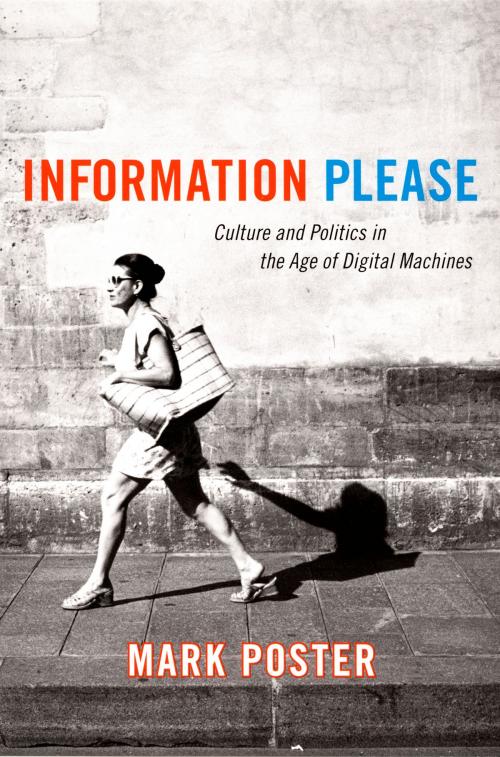Information Please
Culture and Politics in the Age of Digital Machines
Nonfiction, Computers, Advanced Computing, Information Technology| Author: | Mark Poster | ISBN: | 9780822388470 |
| Publisher: | Duke University Press | Publication: | August 30, 2006 |
| Imprint: | Duke University Press Books | Language: | English |
| Author: | Mark Poster |
| ISBN: | 9780822388470 |
| Publisher: | Duke University Press |
| Publication: | August 30, 2006 |
| Imprint: | Duke University Press Books |
| Language: | English |
Information Please advances the ongoing critical project of the media scholar Mark Poster: theorizing the social and cultural effects of electronically mediated information. In this book Poster conceptualizes a new relation of humans to information machines, a relation that avoids privileging either the human or the machine but instead focuses on the structures of their interactions. Synthesizing a broad range of critical theory, he explores how texts, images, and sounds are made different when they are mediated by information machines, how this difference affects individuals as well as social and political formations, and how it creates opportunities for progressive change.
Poster’s critique develops through a series of lively studies. Analyzing the appearance of Sesame Street’s Bert next to Osama Bin Laden in a New York Times news photo, he examines the political repercussions of this Internet “hoax” as well as the unlimited opportunities that Internet technology presents for the appropriation and alteration of information. He considers the implications of open-source licensing agreements, online personas, the sudden rise of and interest in identity theft, peer-to-peer file sharing, and more. Focusing explicitly on theory, he reflects on the limitations of critical concepts developed before the emergence of new media, particularly globally networked digital communications, and he argues that, contrary to the assertions of Michael Hardt and Antonio Negri, new media do not necessarily reproduce neoimperialisms. Urging a rethinking of assumptions ingrained during the dominance of broadcast media, Poster charts new directions for work on politics and digital culture.
Information Please advances the ongoing critical project of the media scholar Mark Poster: theorizing the social and cultural effects of electronically mediated information. In this book Poster conceptualizes a new relation of humans to information machines, a relation that avoids privileging either the human or the machine but instead focuses on the structures of their interactions. Synthesizing a broad range of critical theory, he explores how texts, images, and sounds are made different when they are mediated by information machines, how this difference affects individuals as well as social and political formations, and how it creates opportunities for progressive change.
Poster’s critique develops through a series of lively studies. Analyzing the appearance of Sesame Street’s Bert next to Osama Bin Laden in a New York Times news photo, he examines the political repercussions of this Internet “hoax” as well as the unlimited opportunities that Internet technology presents for the appropriation and alteration of information. He considers the implications of open-source licensing agreements, online personas, the sudden rise of and interest in identity theft, peer-to-peer file sharing, and more. Focusing explicitly on theory, he reflects on the limitations of critical concepts developed before the emergence of new media, particularly globally networked digital communications, and he argues that, contrary to the assertions of Michael Hardt and Antonio Negri, new media do not necessarily reproduce neoimperialisms. Urging a rethinking of assumptions ingrained during the dominance of broadcast media, Poster charts new directions for work on politics and digital culture.















